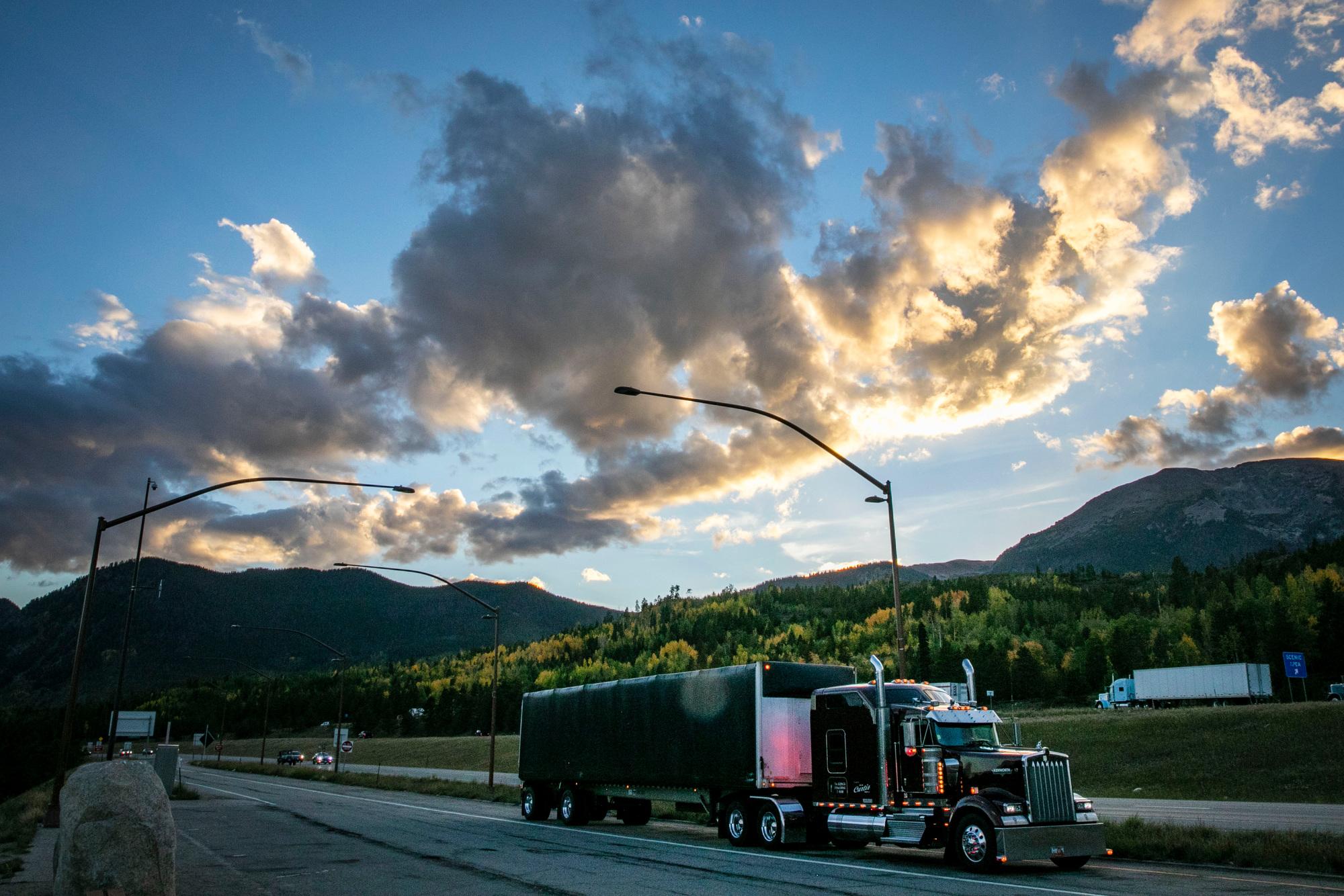
Just weeks after delaying new clean-trucking regulations, the Polis administration has released a comprehensive strategy aimed at cleaning up the state’s biggest and dirtiest vehicles.
Medium- and heavy-duty vehicles like buses, tractor-trailers and delivery trucks account for fewer than 10 percent of vehicles on Colorado’s roads but they are among the dirtiest to operate. Cleaning them up would go a long way toward improving air quality and lowering climate emissions.
A draft of the Colorado Clean Truck Strategy released Thursday shows how the state government intends to push the freight industry — and its own sizable fleet — into a cleaner future.
“There isn't one thing that we can do that's just going to solve the challenges in this sector,” said Kay Kelly, chief of the Colorado Department of Transportation’s Office of Innovative Mobility. “It's really a suite of things.”
The strategy has five overarching objectives:
- To help private companies upgrade their fleets to at least cleaner burning diesel vehicles, if not zero-emission options like electric or hydrogen
- To convert government fleets to zero emission vehicles, including school and public transit buses
- To plan for and support electric charging and hydrogen fueling stations
- To prioritize clean vehicles in ways that benefit under-served communities
- To find the resources needed to achieve these goals
The strategy also lays out more than 30 separate items that will help the state achieve those goals, including new incentives, grants, and partnerships with private industry.
Also on the to-do list: the adoption of the regulations the Polis administration delayed last month, despite protests from environmental advocates. The proposed regulations are based on ones enacted in 2020 by California, the first state to adopt advanced clean-trucking rules. One would compel manufacturers to increase sales of zero-emission trucks and buses. Another would require gas- and diesel-fueled trucks to burn cleaner.
The state Air Quality Control Commission will take up those regulations in 2023. If adopted, the rules would apply to model year 2027 vehicles. The delay will allow the administration to focus first on shorter-term projects like school and transit bus electrification and planning for charging infrastructure, said Will Toor, executive director of the Colorado Energy Office.
“That's an enormous effort to put those programs together and we need to focus on those things that will have an immediate impact,” he said.
The trucking industry is glad the state punted on those regulations for a year, said Greg Fulton, president of the Colorado Motor Carriers Association. He said supply chain issues mean many firms are having difficulty buying any new trucks — and Russia’s invasion of Ukraine may make that worse in coming weeks.
“We're very fragile right now and it's going to get probably a little bit more fragile in the next few months,” he said. “And when you're doing that, the last thing you need is additional regulations or rules or mandates.”
On the whole, Fulton said, his organization supports the state’s overarching goal of cleaning up medium- and heavy-duty trucks.
“Almost every one of our fleets is interested and they're doing a variety of strategies already to try to reduce their carbon footprint and emissions,” he said.
The state is collecting feedback on the strategy through April 4 and expects to finalize the regulations by April 29.
Editor's note: This story has been updated to note that Colorado's proposed clean-trucking rules are based on ones adopted in California.








